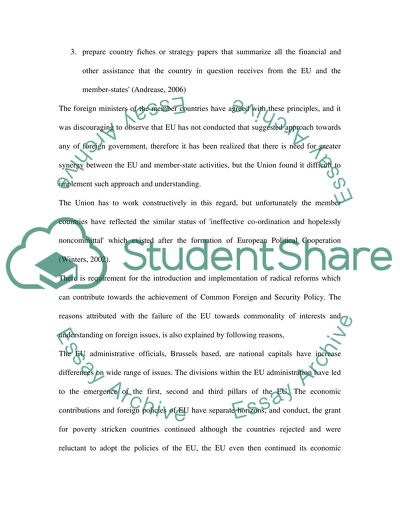Cite this document
(Failure of Foreign Policies in the EU Case Study, n.d.)
Failure of Foreign Policies in the EU Case Study. Retrieved from https://studentshare.org/politics/1540149-why-has-eu-been-able-to-successfully-develop-a-common-trade-policy-but-not-a-common-foreign-policy
Failure of Foreign Policies in the EU Case Study. Retrieved from https://studentshare.org/politics/1540149-why-has-eu-been-able-to-successfully-develop-a-common-trade-policy-but-not-a-common-foreign-policy
(Failure of Foreign Policies in the EU Case Study)
Failure of Foreign Policies in the EU Case Study. https://studentshare.org/politics/1540149-why-has-eu-been-able-to-successfully-develop-a-common-trade-policy-but-not-a-common-foreign-policy.
Failure of Foreign Policies in the EU Case Study. https://studentshare.org/politics/1540149-why-has-eu-been-able-to-successfully-develop-a-common-trade-policy-but-not-a-common-foreign-policy.
“Failure of Foreign Policies in the EU Case Study”, n.d. https://studentshare.org/politics/1540149-why-has-eu-been-able-to-successfully-develop-a-common-trade-policy-but-not-a-common-foreign-policy.


